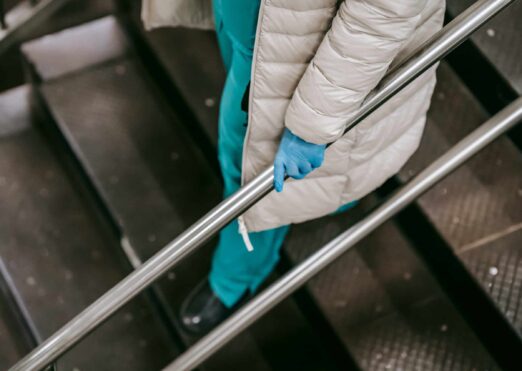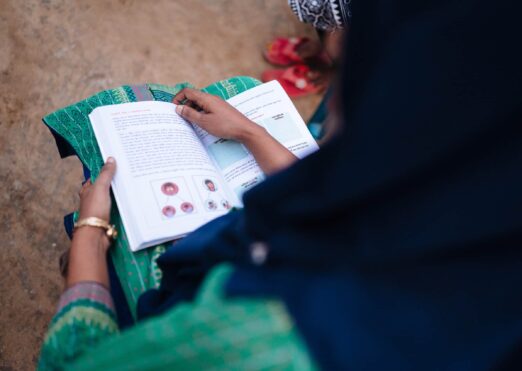Six years on: Modern Slavery Act
March 26, 2021
A few weeks ago at Justice and Care we were called to help eight people found living as slaves in a shipping container in south east England. It was dark, disgusting and dangerous inside. They were given one bunk bed, dirty rugs and a camping stove between them. Outside was a hose for washing and a bucket for a toilet. One of the group was found searching through nearby bins for anything edible and another was nearly dead. They were ‘owned’ by an organised crime group, stored overnight in that hellhole like cattle for slaughter.
This was no one-off. Such discoveries are sadly all-too routine for our team now. Whether we find them in shipping containers, lorries, caravans or dingy bedsits, thousands of people are being stored as slaves across our country with frightening ease.
Our UK ‘Navigators’ (the role we created to work with police and care for victims) have now assesed almost 2,000 slavery cases across just seven police areas. So whilst one pandemic may have dominated everything this last year, another has thrived in the shadows alongside it too.
This matters because six years ago today, just weeks before the country went to the polls for the 2015 General Election, David Cameron’s Government passed the Modern Slavery Act. I was involved in that process and although it didn’t make much news or win many votes, that Act began to take the UK’s fight against this sickening crime forward. And in a week in which the Government has announced controversial plans to overhaul the approach at our Borders (about which we will say more in due course) the Modern Slavery Act is an important way to understand the context for our UK work.
First, it was significant because our country admitted we had a problem. Until then it was tempting to write it off as one affecting children in Asia or young eastern european women, but the Government was right to be honest about our own challenges here. Second, the Act got tougher on people traffickers and slave masters. In came life sentences, alongside new criminal and civil options for the courts. It also promised protections for child victims and created a new independent Commissioner to provide accountability. A radical new focus for business was included too. Initially Ministers resisted our calls to ensure companies interrogated their supply chains for human slavery, but thankfully decency won and Modern Slavery Statements became law. Although many businesses still tend to ignore this requirement – a shocking failure which has to be ended – last year our Government became the first in the world to publish its own modern slavery supply chains statement. Overall these were important developments.
Yet fast forward to the present day and we see a job far from done. The Home Office recently released the latest UK slavery figures, which for the first time since records began found little change on last year. 10,613 people were found, compared to 10,616 in 2019. Of these, 47% were children (predominantly British (58%)) who had been criminally and sexually exploited by gangs.
But we need to be clear about the figures: the so-called levelling out is the impact of Covid rather a stalling of slavery. And we are only finding one in ten victims out there. Policing has been stretched, charities hit and, crucially, organised crime groups have adapted during the crisis. The plateau in numbers also masks a significant rise in criminal exploitation of children by county lines gangs and a significant drop in adult referrals in the first six months of 2020. Shockingly, we are also rescuing far fewer women from sexual slavery, though police are encountering ‘Covid-compliant’ brothels with intelligence of coercive and controlling behaviour. And men once exploited in car washes have been moved to grow cannabis. So, as we emerge from this third lockdown we have to fire up the country’s anti-slavery engines once more.
Four key priorities demand action as we do that. First, we need to find more of the people out there living in slavery. They are all around us, but we just don’t look hard enough. That means more proactive policing, smarter investigations when possible cases emerge and every member of the public playing our part too. Some of the biggest trafficking rings have been stopped because ordinary people spotted something alarming and told police. Indeed we published a report with the Centre for Social Justice last year called It Still Happens Here concluding that in the UK, concluding that in the UK, based on police data, there are more than 100,000 victims of slavery. More than the country’s prison population. So we find 1 in 10 victims at best. This is dreadful failure and has to change.
Second, we need to start treating survivors as people not problems. Right now more than 18,000 possible victims of slavery are in limbo in our national system, painfully stuck waiting for a decision about their status and support. After sometimes years of the worst possible abuse imaginable, usually on British soil, this adds insult to injury. Reforms to the victim care system have been long-promised by successive Governments – let us now get on with it as we rebuild from the rubble of Covid.
If we do that, the third priority will become more achievable: dismantling the trafficking networks making so much money from their trade in human misery. Victims who feel respected and cared for often want to work with authorities to bring their abusers to justice. When they choose to talk, crime groups worry. When we treat them poorly, crime groups breathe a sigh of relief. Programmes like ours, where Navigators manage contact with victims, show this increases our chances of locking traffickers up. For instance 8 in 10 victims are choosing to engage with police through our teams, compared to only 3 in 10 nationally. Alongside this, investigators and CPS decision-makers need to make better use of the definitions and sentencing options provided by that Modern Slavery Act six years ago.
And fourth, although alarmingly now a third of all victims found are British, we need to get serious at source. Too many countries are failing miserably to deal with this problem, leaving their citizens vulnerable to slave-drivers and Britain to pick up the pieces when slavery comes to our shores. So unless we now start pressing regimes to tackle this in places like Romania, Albania, Nigeria and Vietnam, we will keep fighting a losing and reactive battle. That means tackling poverty, corruption and criminal tactics where people are most at-risk.
Six years on from one of the Coalition Government’s best kept secrets, the 2015 Modern Slavery Act gives us a fighting chance of stopping this evil trade in human beings. Honouring its intentions, including as the new immigration reforms are debated, is one of the most important things this Government can now do.
Christian Guy is the Chief Executive of Justice and Care, and a former adviser to the Prime Minister in 10 Downing Street


